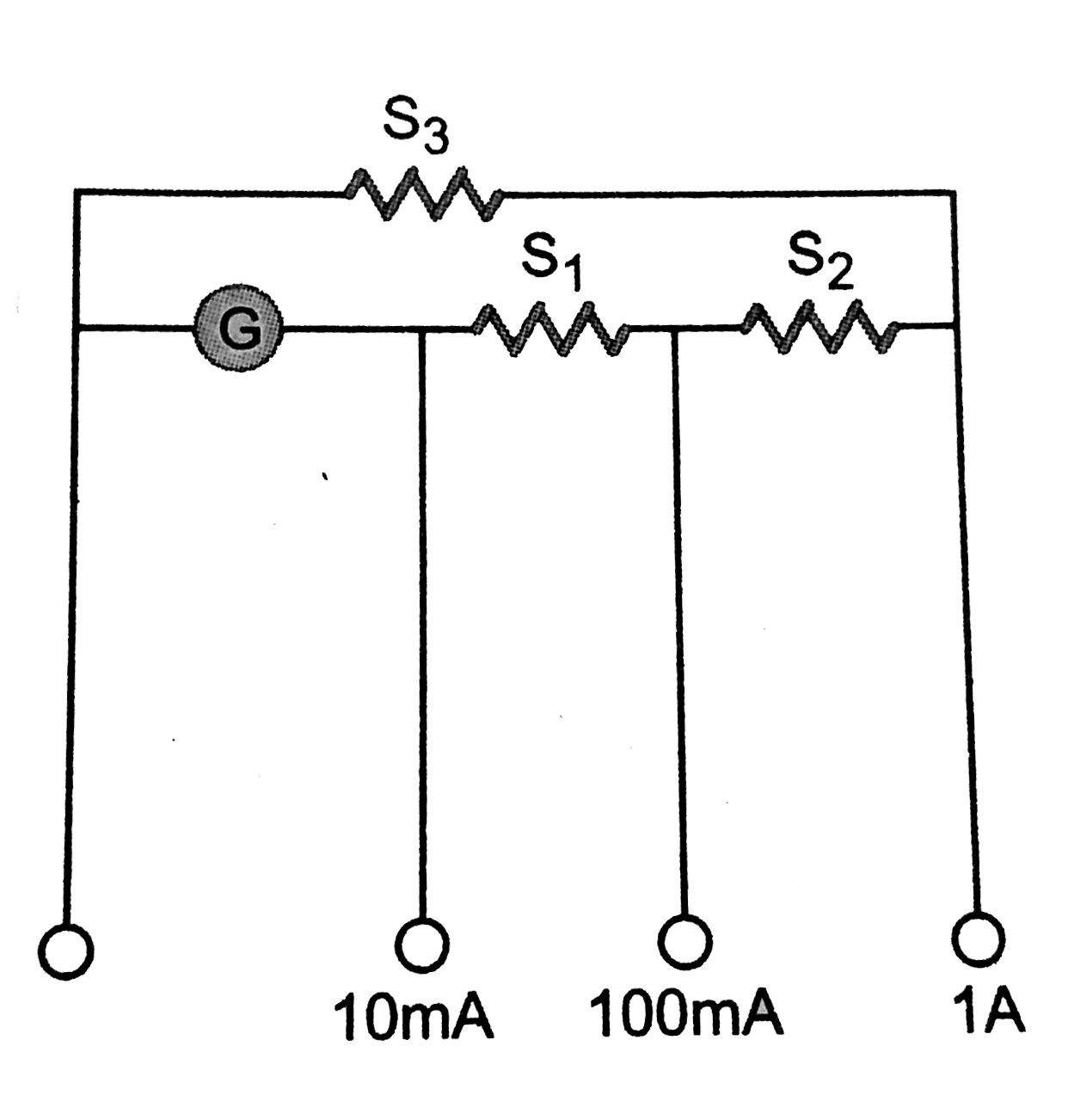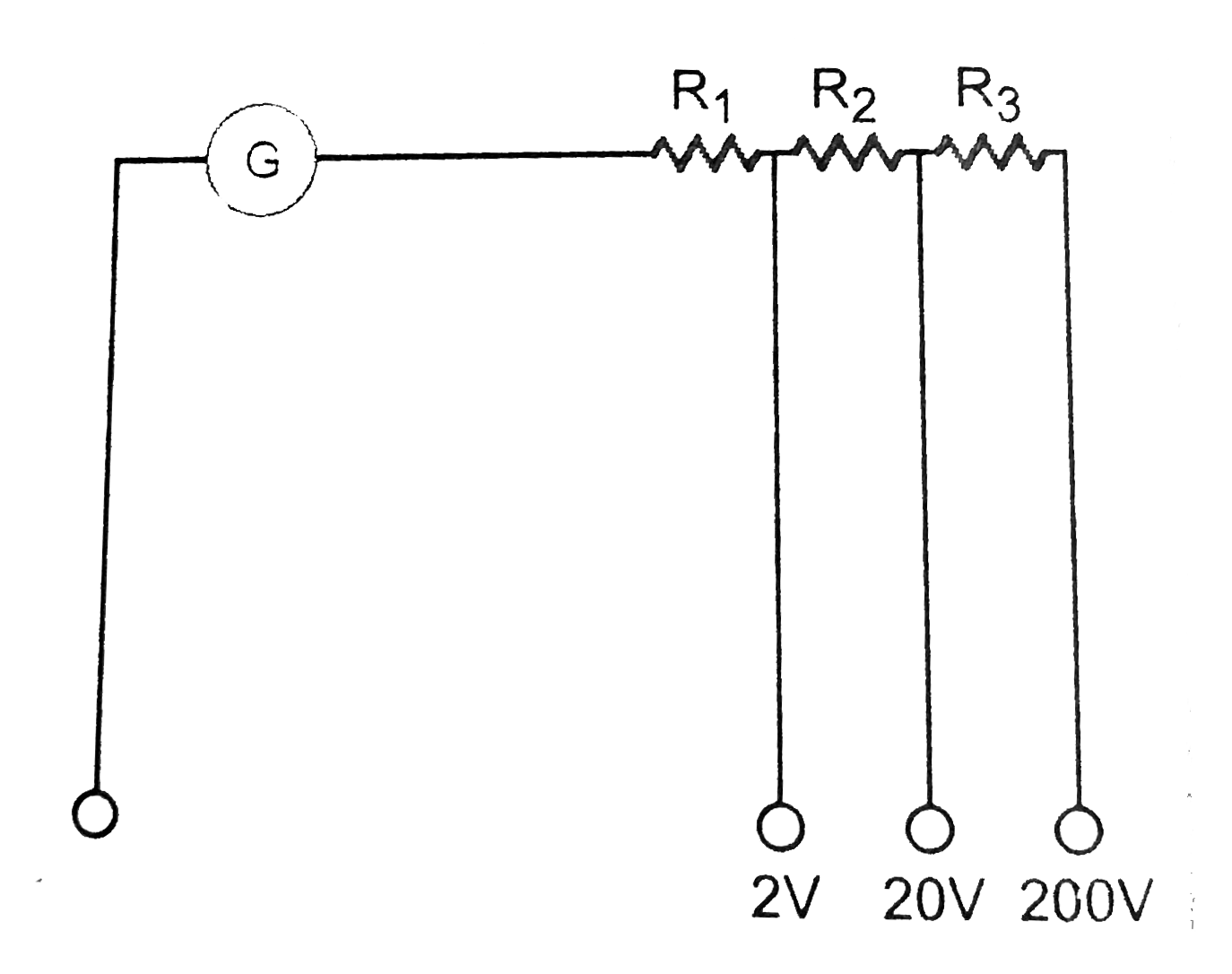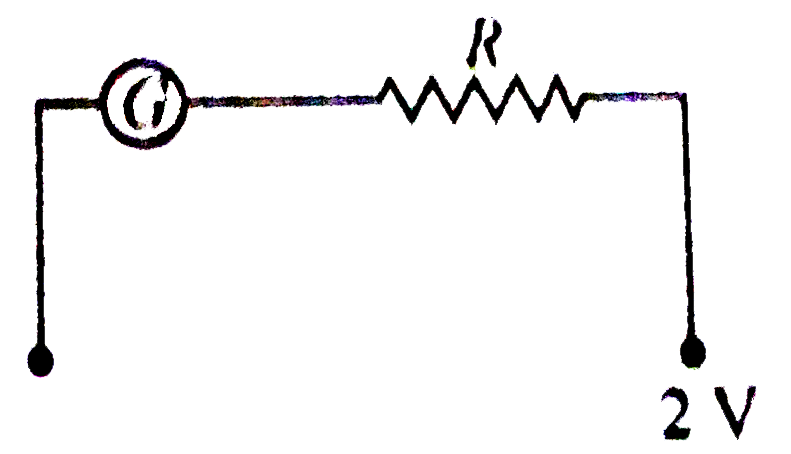A multirange current meter can be constructed by using a galvanometer circuit as shown in figure. We want a current meter that can measure 10mA, 100mA and 1A using a galvanometer of resistance 10Ω and that produces maximum deflection for current of 1mA. Find S1,S2 and S3 that have to be used.

IG.G=(I1−IG)(S1+S2+S3) for I1=10mA
IG(G+S1)=(I2−IG)(S2+S3) for I2=100mA
and IG(G+S1+S2)=(I3−IG)(S3) for I3=1A
gives S1=1W,S2=0.1W
and S3=0.01W
Topper's Solved these Questions
Similar Questions
A multirange voltmeter can be constructed by using a galvanometer circuit as shown in figure. We want to construct a voltmeter that can measure 2V, 20V and 200V using a galvanometer of resistance 10Ω and that produces maximum deflection for current of 1mA. Find R1, R2 and R3 that have to be used.
 View Solution
View SolutionA voltmeter which can measure 2 V isconstructed by using a galvanometer of resistance 12Ω and that produces maximum deflection for the current of 2mA. Then the resistance R is
 View Solution
View Solution
Knowledge Check
- Question 1 - Select One
Galvanometer of resistance 25Ω shows full deflection for current of 10 mA. The resistance required to convert it into 100 V range will be
A9975Ω in seriesB975Ω in seriesC10025Ω in parallelD10000Ω in parallel - Question 2 - Select One or More
A galvanometer with a coil of resistance 50Ω shows full-scale deflection when 10 mA current passes through it.
AThe galvanometer can measure a maximum voltage of 0.5 V.B5 A current can be measured if a shunt of 0.1Ω is connected in parallel to it.CIt can be used as voltmeter to measure a voltage of 5 V if 450Ω resistance is connected in series with the coil of the galvanometer.DIt can be used as a voltmeter to measure a voltage of 50 V if 4,950Ω resistance is connected in series with the coil of the galvanometer. - Question 3 - Select One
A galvanometer of internal resistance 100Ω has a full scale deflection current of 1mA. To convert it into a voltmeter of range 0−10V, the resistance to be connected is
A9000 Ω in SeriesB10,000 Ω in SeriesC9,900 Ω in SeriesD9,800 Ω in Series
A galvanometer has coil resistance 30Ω and full deflection current of 2mA. What resistance is needed to convert it into a voltmeter of 0.2V range.
View SolutionCan we use galvanometer to measure alternating current ?
View SolutionA galvanometer coil has a resistance of 15Ω and the meter shows full scale deflection for a current of 4mA. How will you convert the meter into an ammeter of range 0 to 6A?
View SolutionThe value of shunt to be used to pass 1/10th of the total current through a galvanometer of resistance 100Ω is
View SolutionA galvanometer of internal resistance 100Ω has a full scale deflection current of 1mA. To convert it into a voltmeter of range 0−10V, the resistance to be connected is
View Solution

